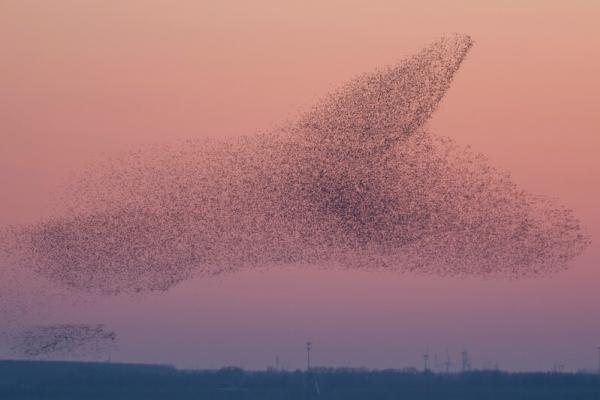“The Lord is my shepherd: I shall not want.”
Over the phone, Ran Limbu quotes the words of Psalm 23. He is the pastor of Christ Believer Nepali Church, a Bhutanese refugee church on the west side of Madison, Wis. This passage has come alive for him over the past decade while living in the United States of America. This verse has encouraged him to trust that God is his home even in his displacement.
“When we were in Nepal, in a refugee camp, we had nothing,” Limbu said, remembering the moments he shared with more than 100,000 Bhutanese refugees in 2007. According to Amnesty International, the Lhotshampas, Bhutanese citizens of Nepali origin, were stripped of their nationality because of Bhutan’s “One Nation, One People” policy, a campaign that imposes a national identity through “Bhutanization.” Lhotshampas fled to eastern Nepal for their safety. In 2019, ReliefWeb, a humanitarian information service provided by OCHA, estimated that 96,000 Bhutanese refugees had resettled in the United States over the past decade. “There were no jobs for us in Nepal but even then we had food to eat and a bed to sleep in,” said Limbu. “God provided us with everything we needed.”
For Limbu and his congregants, the U.S. is a place of safety. It is where God brought them, across ocean and circumstance, to start anew. In his voice, I hear gratitude I do not have. I, too, am an immigrant, but I dragged my feet to this country because I didn’t want to leave the Philippines. My mother, who is one of the 150,000 Filipino nurses who have immigrated to the U.S. since the 1960s, held onto the promise that God would make the journey with our family. This promise was what carried us through the Pacific.
The Lord was my shepherd but I wanted, with a deep conviction, to bypass displacement. I believed God was everywhere, including the U.S. God was in the river in Cagayan where I was baptized next to water buffalos; God was in the teeth of the Pacific heat, where my churchmates would speak in tongues with sweat beading on their forehead; God was in our basement during Bible study as our mothers shared their prayer requests over coffee.To live outside of the homeland was to live away from the place where I knew God and experienced God’s divine providence.
Since coming to the U.S., Limbu and I have both grappled, in our own ways, with what it means to trust that God is with us even as we feel displaced. What did it mean for us to allow God to shepherd us into the unknown and surrender to a future where return to our respective homelands was not promised?
Displacement is a lonely ordeal. When the congregants of Christ Believer Nepali Church first arrived in the U.S. and were churched in a Lutheran context, it was alienating to them to pray in English — a language that they did not fully grasp. The Bible was also taught in English, and many felt they were not able to develop a robust understanding of God’s word. Because of this, they decided to gather in a congregant’s apartment basement, worshiping in their heart language — Nepali.
For immigrants and refugees, finding a community in the diaspora can help people feel at home. This is why every Tuesday, my mother attends a prayer meeting over Zoom with Filipino migrant women. Behind closed doors, I can hear her mumbling in Tagalog and English and, through tears of both anguish and delight, say to God, “You were the one who brought us here.” She says that in a tone laden with thanksgiving and helplessness. Displaced people hold the joys of miraculous provision and the sadness of indescribable loss. The God who is with us in our displacement is able to carry this tension and gives us a community to celebrate and mourn with through it all.
Limbu knows the power of having a community to both lament and celebrate with. As the Nepalese fellowship grew, they started looking for a more permanent place to gather. When they reached out to Good Shepherd Lutheran Church (GSLC) to ask if they could share a building, they were welcomed with open arms. This congregation also had a heart for refugees. The church’s refugee resettlement ministry partners with Jewish Social Services to help with meeting refugees upon their initial arrival. Church congregants pick them up from the airport, furnish their apartments, and prepare a welcome meal for them. Members of the church have been raising funds within the congregation to support families from Burundi, Syria, and Ukraine.
“Doing this ministry made us think of how big God’s kingdom is,” says Dara Schuller-Hanson, pastor of community partnerships at GSLC. She has seen how her congregants have grown in welcoming displaced people. Partnerships were formed in their community that were impactful for both volunteers and refugees. They have collaborated with Jewish Social Services alongside other churches in the community to help with the early stages of resettlement. This resulted in refugees feeling more comfortable in the cross-cultural context.
Today, Limbu and Schuller-Hanson worship in the same building, and sometimes have had joint services. This is just one of the testaments of God’s providence remaining steadfast in Limbu’s life. A passage he often returns to is Matthew 6:26, where Jesus says, “Look at the birds of the air: they neither sow nor reap nor gather into barns, and yet your heavenly Father feeds them. Are you not of more value than they?” Limbu returns to this passage as he looks to the coming years of serving Bhutanese refugees in Madison, remembering that God sees him, and his congregation.
I had to remember that too, as I was particularly lonely during my third year in the U.S. The weight of my displacement was heavy on my spirit, and to cope, I would watch the ducks and geese on Lake Monona swimming and flying in the expanse of the blue sky. There was a levity to their existence, a faith exercised with the fluttering of their wings.
It made me think of Matthew 6:26, and how the Lord has met me in new ways in this new country. I have found friendships with women of color and felt cared for in my multiethnic church congregation. Birds, as migratory as they are, are fed by God, and I am more valuable than they are, so I can trust that God will also provide for me. The loneliness I experienced in my displacement will not wring this joy out of me.
Migrants and refugees, despite the pains and losses that come with our displacement, can rejoice. We, the displaced, are not alone. God is with us everywhere — in both the old country and the new, in both lamentation and praise, in both rootedness and displacement. “I believe that God will not leave us alone,” Limbu said. He echoes the words of the psalmist at the end of Psalm 23, “Surely your goodness and love will follow me all the days of my life, and I will dwell in the house of the Lord forever.”
Limbu and I can attest to the mercy God has shown us through the hospitality of those who received us when we moved to this country. Even though neither of us feels completely at home in the U.S., God welcomes us with a body of believers everywhere. This is why churches and congregations, especially in North America, should love the displaced by investing in refugee resettlement efforts, volunteering with organizations in the community that care for migrants and refugees, and fighting for legislation that would allow them to flourish in the new country. Following God is an invitation to both the displaced and the rooted. Whether we are the ones who are welcomed or the ones who are doing the welcoming, we are challenged to trust that mercy is abundant and available. It will meet us wherever we go.
Got something to say about what you're reading? We value your feedback!






